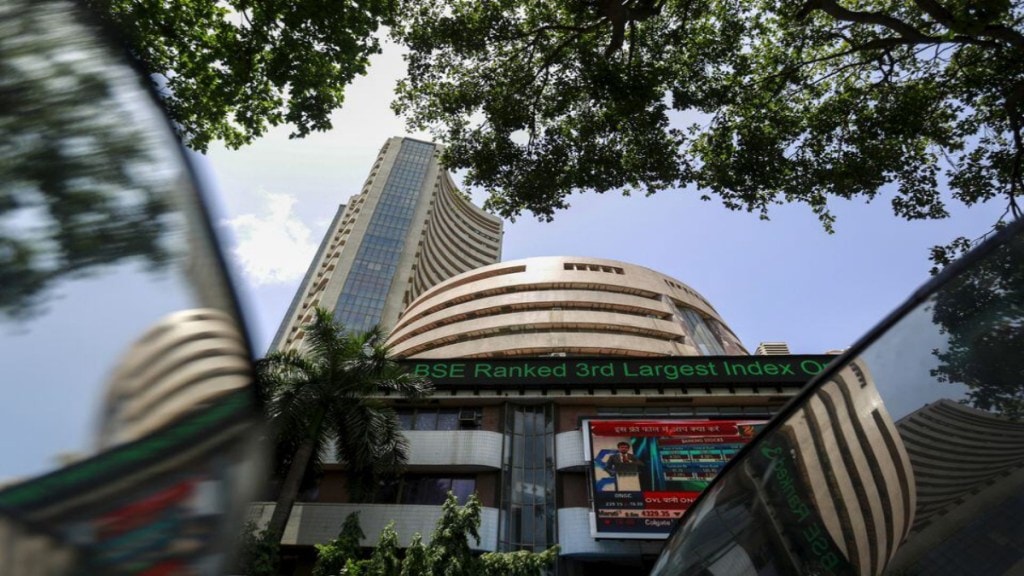After a day of recovery, the benchmark indices resumed their downward trend on Wednesday as renewed tariff concerns over the US imposing a 104% tax on Chinese imports dampened investor sentiment.
Tracking weak global cues, the Sensex and the Nifty opened gap-down and remained range-bound throughout the session. The Reserve Bank of India’s 25-basis point repo rate cut and a shift in policy stance from “neutral” to “accommodative” failed to lift investor sentiment. It, however, did help limit a further downside in the equities. On the other hand, the lowering of GDP growth projections for the current fiscal to 6.5% from 6.7% weighed on market mood.
The Sensex fell 379.93 points or 0.51% to close at 73,847.15, while the Nifty declined 136.70 points or 0.61% to end at 22,399.15. The broader markets also declined, with the BSE Midcap and BSE Smallcap indices falling 0.73% and 1.08%, respectively.
“The RBI’s 25 bps rate cut and shift to an accommodative stance come at a critical juncture, as global growth wobbles under trade wars, tariff shocks, and sluggish demand,” said Nikunj Saraf, V-P, Choice Wealth. “With inflation firmly anchored at 3.6%—below the 4% target—the move aims to revive domestic consumption and shield India’s economy from external headwinds,” he added.
“Market sentiment was dented by the RBI’s mention of revised gold loan guidelines, which triggered uncertainty. NBFCs and banks with strong gold loan portfolios witnessed sharp corrections,” said Deepak Ramaraju, senior fund manager, Shriram AMC.
“The ‘risk-off’ mood among investors, driven by regulatory overhang, contributed to the sell-off,” he noted, adding: “The fact that the guidelines are open for comments and review adds a layer of unpredictability to earnings visibility for these companies.”
In Asia, equity indices in Hong Kong and China rose 0.68% and 1.31%, respectively. However, markets in Japan, Taiwan, South Korea, Singapore, and Malaysia declined by up to 5.8%. European indices were also trading lower by as much as 4%, while US futures fell around 2% amid reports that China had announced an 84% tariff on imports of US goods in retaliation.
Back home, the overall market breadth was negative with 2,359 losers against 1,529 gainers. Investors’ wealth got eroded by Rs 2.75 lakh crore, bringing the total market capitalisation down to Rs 393.82 lakh crore.
PSU banks, IT, realty, pharma, and metal stocks were among the top sectoral laggards, slipping up to 2.5%. In contrast, FMCG, consumer durables, and auto sectors emerged as gainers, rising up to 1.51%.
FMCG stocks were in demand on hopes that the RBI’s rate cut, coupled with a lower inflation forecast, would help boost consumer spending.

